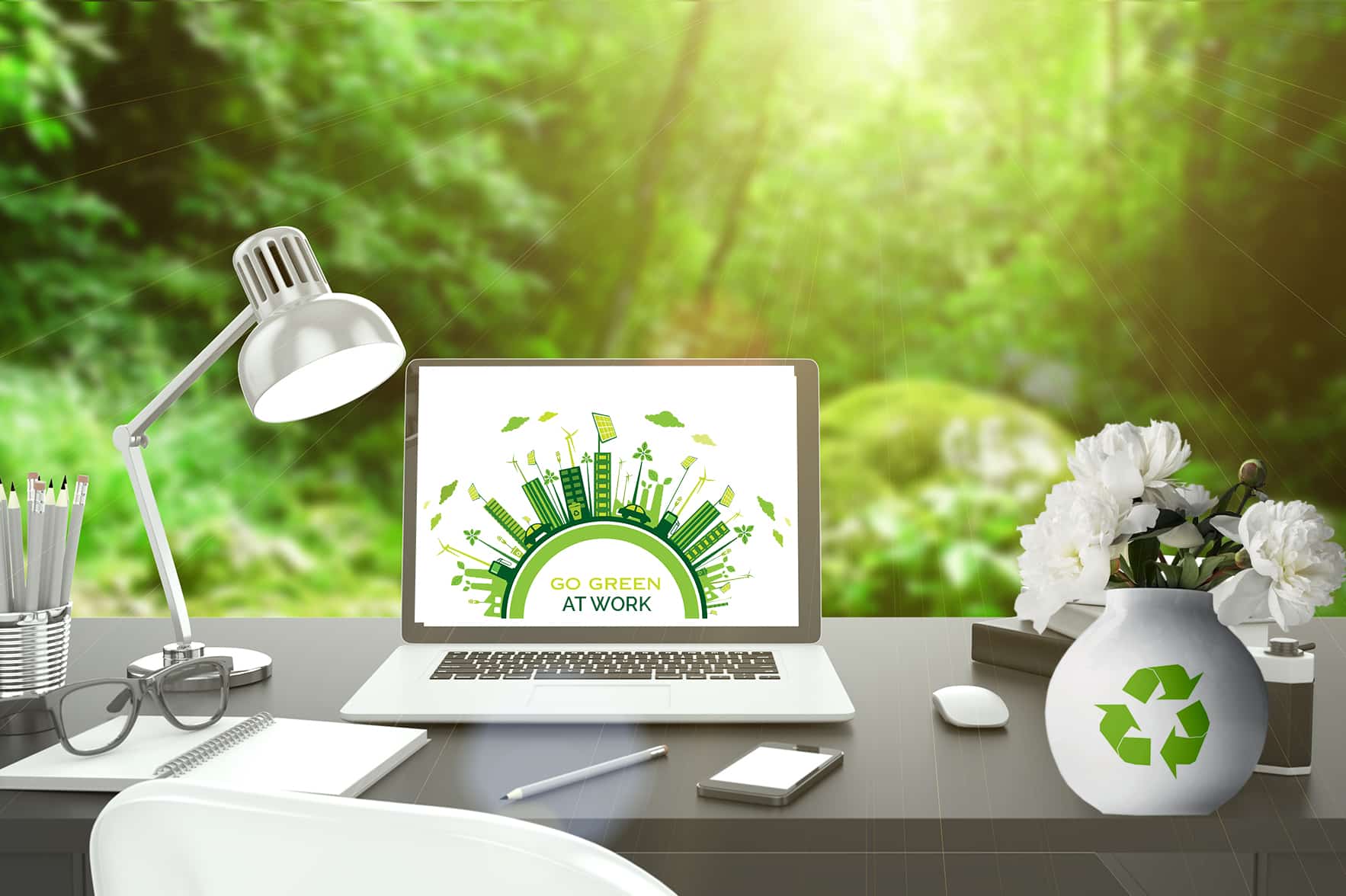Since most of us spend the majority of our lives either at work or travelling to and from work, it is here that you can make the most gains if you want to reduce your carbon footprint. For obvious reasons it is probably not a good idea to show up for a board meeting wearing a recycled hemp smock or start spouting off about greenhouse gas emissions at a client presentation, but with the aid of a few simple lifestyle changes, you can really make a difference.
Cycle to Work
Cycling is a green way of travelling to work since it relies on the power your legs expend as opposed to using a tank of petrol or diesel. In order to encourage workers to start cycling to the office instead of driving, the government introduced a subsidised cycle to work initiative. The scheme is very easy to set up and if your company is not already a member, encourage them to join.
Once the scheme has been initiated, try and get others on board and start campaigning for workplace showers – if you explain that a healthy employee is a happy and more productive employee, your company is bound to sit up and take note.
Work from Home
One way of avoiding environmentally unfriendly travel to work is to work from home some or all of the time. Lots of employers offer flexible working conditions whereby their employees can opt to work from home, so it’s always worth asking your current employer whether this is something they would be happy with.
Switch off Equipment
We are all guilty of leaving equipment plugged in and on stand-by at work and at home. Computers, printers, and other electrical equipment all use lots of unnecessary power when they are left on, so make sure you turn them off when they are not in use and encourage your colleagues to do the same where possible.
Turn the Lights Off!
Instead of leaving every light in the building blazing away, irrespective of whether anyone is in the room, get into the habit of switching lights off when you leave the room. This will save the company a lot of money on the annual power bill, plus it will be good for the environment.
Eco-Power
Look into renewable energy sources. Even large companies can benefit from switching to clean energy sources such as solar panels and wind turbines. There will be an initial cost up front, but in the long term, the company’s investment in renewable energy will more than pay for itself.
Build a Roof Garden
Roof gardens have lots of environmental benefits. Roof gardens provide insulation during the winter and protect against heat gain in the summer. Roof gardens also protect against rain water and snow run-off, plus they attract wildlife. Not all buildings are suitable for a roof garden, but if your company has a flat roof, it is the perfect space to create a lovely garden space for employees to use for down time.





